
A brothel, bordello, bawdy house, ranch, house of ill repute, house of ill fame, or whorehouse is a place where people engage in sexual activity with prostitutes. However, for legal or cultural reasons, establishments often describe themselves as massage parlors, bars, strip clubs, body rub parlours, studios, or by some other description. Sex work in a brothel is considered safer than street prostitution.

Prostitution in the Netherlands is legal and regulated. Operating a brothel is also legal. De Wallen, the largest and best-known Red-light district in Amsterdam, is a destination for international sex tourism.
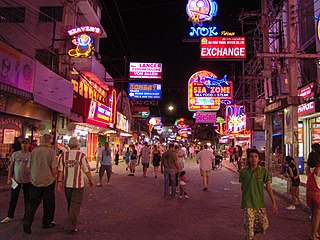
Prostitution in Thailand is not itself illegal, but public solicitation for prostitution is prohibited if it is carried out "openly and shamelessly" or "causes nuisance to the public". Due to police corruption and an economic reliance on prostitution dating back to the Vietnam War, it remains a significant presence in the country. It results from poverty, low levels of education and a lack of employment in rural areas. Prostitutes mostly come from the northeastern (Isan) region of Thailand, from ethnic minorities or from neighbouring countries, especially Cambodia, Myanmar, and Laos. In 2019, the Joint United Nations Programme on HIV/AIDS (UNAIDS) estimated the total population of sex workers in Thailand to be 43,000.

After taking power in 1949, the Chinese Communist Party (CCP) embarked upon a series of campaigns with the aim of eradicating prostitution from mainland China by the early 1960s. Since the loosening of government controls over society in the early 1980s, prostitution in mainland China not only has become more visible, but can now be found throughout both urban and rural areas. In spite of government efforts, prostitution has now developed to the extent that it comprises an industry, one that involves a great number of people and produces a considerable economic output. Prostitution has also become associated with a number of issues, including organized crime, government corruption, hypocrisy, as well as sexually transmitted diseases. Notably, a CCP official who was a major provincial campaigner against corruption was removed from his post and expelled from the party after he was caught in a hotel room with a prostitute in 2007.
Prostitution in South Korea is illegal, but according to The Korea Women's Development Institute, the sex trade in Korea was estimated to amount to 14 trillion South Korean won in 2007, roughly 1.6% of the nation's GDP. According to a survey conducted by the Department of Urology at the Korea University College of Medicine in 2015, 23.1% of males and 2.6% of females, aged 18–69, had sexual experience with a prostitute.
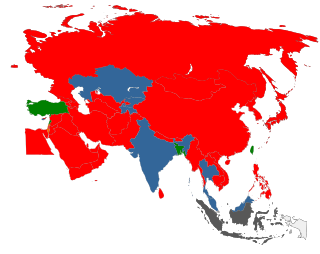
The legality of prostitution in Asia varies by country. There is often a significant difference in Asia between prostitution laws and the practice of prostitution. In 2011, the Asian Commission on AIDS estimated there were 10 million sex workers in Asia and 75 million male customers.

Prostitution is illegal in the vast majority of the United States as a result of state laws rather than federal laws. It is, however, legal in some rural counties within the state of Nevada. Additionally, it is decriminalized to sell sex in the state of Maine, but illegal to buy sex. Prostitution nevertheless occurs elsewhere in the country.
Forced prostitution, also known as involuntary prostitution or compulsory prostitution, is prostitution or sexual slavery that takes place as a result of coercion by a third party. The terms "forced prostitution" or "enforced prostitution" appear in international and humanitarian conventions, such as the Rome Statute of the International Criminal Court, but have been inconsistently applied. "Forced prostitution" refers to conditions of control over a person who is coerced by another to engage in sexual activity.
Prostitution in Turkey is legal and regulated. The secularization of Turkish society allowed prostitution to achieve legal status during the early 20th century. Known as "general houses" (genelevler) in the country, these are state run brothels which must receive permits from the government to operate. In turn, the regulatory agencies issue identity cards to sex workers that give them rights to some free medical care and other social services. However, many local governments now have a policy of not issuing new registrations, and in some cities, such as Ankara and Bursa, brothels have been demolished by court order. In 2012, it was estimated there are 100,000 unliscenced prostitutes in Turkey, half of whom are foreign born.

Prostitution is a type of sex work that involves engaging in sexual activity in exchange for payment. The definition of "sexual activity" varies, and is often defined as an activity requiring physical contact with the customer. The requirement of physical contact also creates the risk of transferring infections. Prostitution is sometimes described as sexual services, commercial sex or, colloquially, hooking. It is sometimes referred to euphemistically as "the world's oldest profession" in the English-speaking world. A person who works in the field is usually called a prostitute or sex worker, but other words, such as hooker and whore, are sometimes used pejoratively to refer to those who work in prostitution. The majority of prostitutes are female and have male clients.

Sex workers' rights encompass a variety of aims being pursued globally by individuals and organizations that specifically involve the human, health, and labor rights of sex workers and their clients. The goals of these movements are diverse, but generally aim to legalize or decriminalize sex work, as well as to destigmatize it, regulate it and ensure fair treatment before legal and cultural forces on a local and international level for all persons in the sex industry.
Prostitution in Malaysia is restricted in all states despite it being widespread in the country. Related activities such as soliciting and brothels are illegal. In the two states of Terengganu and Kelantan, Muslims convicted of prostitution may be punishable with public caning.
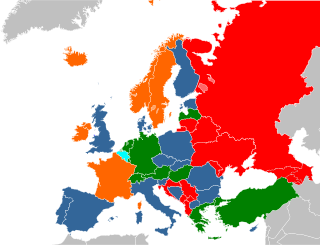
The legality of prostitution in Europe varies by country.

The sex industry consists of businesses that either directly or indirectly provide sex-related products and services or adult entertainment. The industry includes activities involving direct provision of sex-related services, such as prostitution, strip clubs, host and hostess clubs, and sex-related pastimes, such as pornography, sex-oriented men's magazines, women's magazines, sex movies, sex toys, and fetish or BDSM paraphernalia. Sex channels for television and pre-paid sex movies for video on demand, are part of the sex industry, as are adult movie theaters, sex shops, peep shows, and strip clubs. The sex industry employs millions of people worldwide, mainly women. These range from the sex worker, also called adult service provider (ASP), who provides sexual services, to a multitude of support personnel.
This is an overview of prostitution by region.

Prostitution laws varies widely from country to country, and between jurisdictions within a country. At one extreme, prostitution or sex work is legal in some places and regarded as a profession, while at the other extreme, it is considered a severe crime punishable by death in some other places. A variety of different legal models exist around the world, including total bans, bans that only target the customer, and laws permitting prostitution but prohibiting organized groups, an example being brothels.
Prostitution in Namibia is legal and a highly prevalent common practice. Related activities such as solicitation, procuring and being involved in the running of a brothel are illegal. A World Bank study estimated there were about 11,000 prostitutes in Namibia.
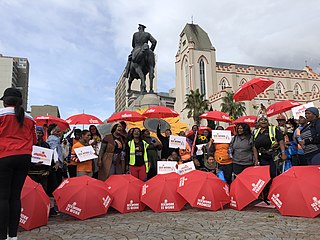
The decriminalization of sex work is the removal of criminal penalties for sex work. Sex work, the consensual provision of sexual services for money or goods, is criminalized in most countries. Decriminalization is distinct from legalization.
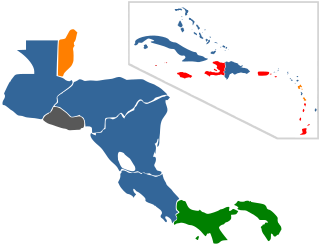
Legality of prostitution in the Americas varies by country. Most countries only legalized prostitution, with the act of exchanging money for sexual services legal. The level of enforcement varies by country. One country, the United States, is unique as legality of prostitution is not the responsibility of the federal government, but rather state, territorial, and federal district's responsibility.
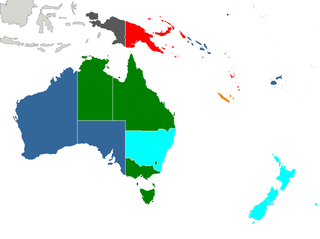
Prostitution in Oceania varies greatly across the region. In American Samoa, for instance, prostitution is illegal, whereas in New Zealand most aspects of the trade are decriminalised.














